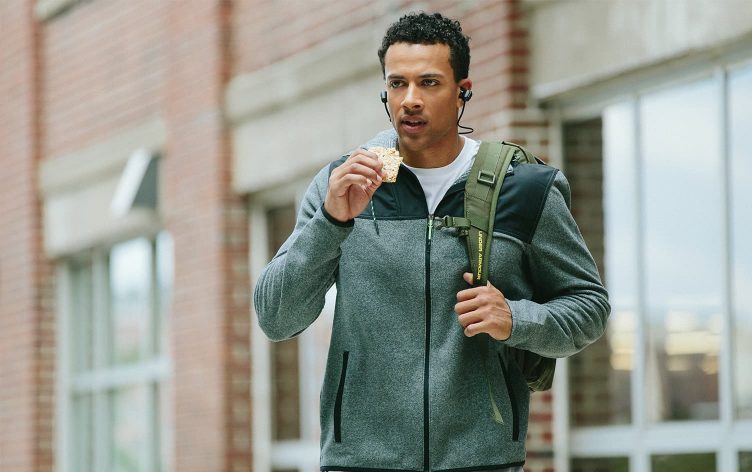
Getting into the swing of a new running routine can have some expected side effects: sore muscles, a hankering for fresh new gear and a new-found hatred for that pre-dawn wakeup call. But you might also find yourself with a less expected impact on your weight loss plan: an increased appetite.
“Immediately after a workout, exercise may suppress hunger,” says Alissa Rumsey, M.S., R.D., C.S.C.S, spokesperson for the Academy of Nutrition and Dietetics. “But later in the day, your hunger hormones can surge making you want to eat.”
The issue is that exercise (especially the intense variety) initially causes your levels of ghrelin — aka the hunger hormone — to drop. By the time you’ve finished showering, your hormone levels have returned to normal, and on top of that, your body is also dealing with a big calorie deficit from what you’ve just burned. Cue the sudden feeling of being famished.
“Oftentimes people will reward themselves with rich foods and larger portions after a hard workout. While it may take an hour to burn 500 calories, it takes just a few minutes to eat that all back,” says Rumsey.
The dilemma becomes about how to make sure we’re getting adequate fuel to keep us strong through our workout without totally undermining our waistlines. Make sure you’re checking these three boxes to stay on pace with your weight loss goals.
Schedule Runs Wisely
When possible, try to schedule your runs before an existing meal, whether that means setting the alarm extra early to give yourself enough time to work out and still have a balanced breakfast or to head out of the office with enough time to squeeze in some treadmill time before dinner. “This way, when you finish your workout, it’s time to eat your regular meal,” says Rumsey. Not only will you get an adequate post-run refuel, but you’ll also prevent yourself from adding unnecessary mini meals to your daily food diary.
Have a Post-Run Snack
If you can’t schedule your run in advance of a meal, it’s still important to listen to your body and replenish some of those calories post cardio, says Rumsey. “After a long run, your appetite might initially be suppressed,” she notes. “If that is the case, try to still get in a snack of some sort, otherwise your hunger hormones will surge later in the day and cause you to eat even more than you need.” If you can’t stomach the thought of eating after a hot and sweaty run, try a liquid meal. “Combine a handful of leafy greens, 1-1.5 cups of fruit, 4-6 oz plain Greek yogurt, a tablespoon of chia seeds, 2 tablespoons of nuts or a tablespoon of nut butter, and 8-10 ounces of liquid,” says Rumsey.
Stay Hydrated
Staying well-hydrated before, during and after your run is not only important for a healthy workout, it’s also key for keeping your hunger in check. “Often thirst is mistaken for hunger, and if you aren’t staying hydrated during your workout, you will end up feeling hungrier later in the day,” says Rumsey. After your run, immediately chug a big glass of water before hitting the shower. By the time your hunger hormones level off, you’ll have taken thirst out of the equation and will be less likely to overeat.



